Cosmic Maestro
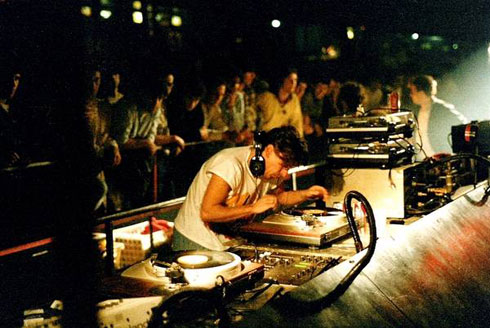
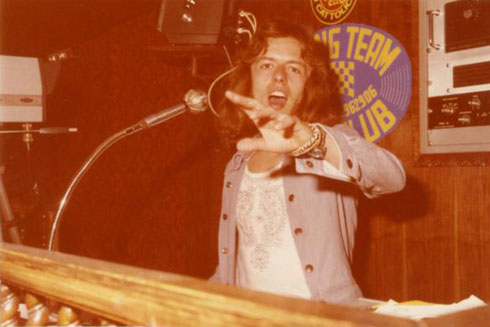
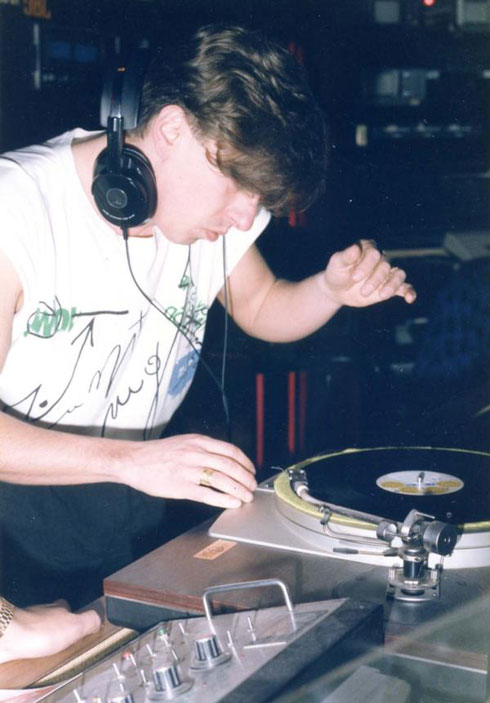
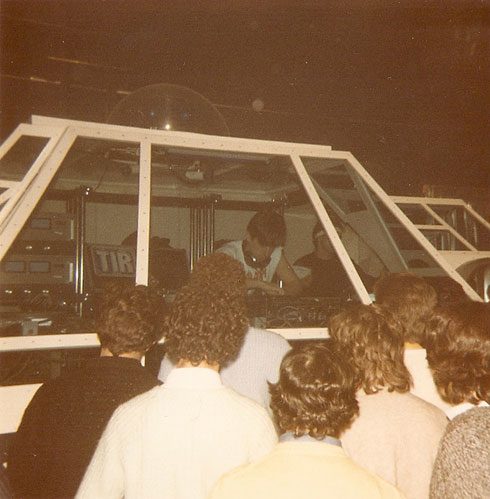
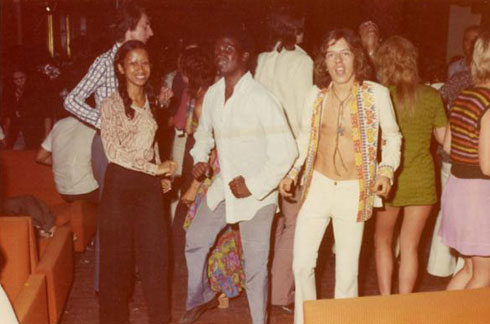
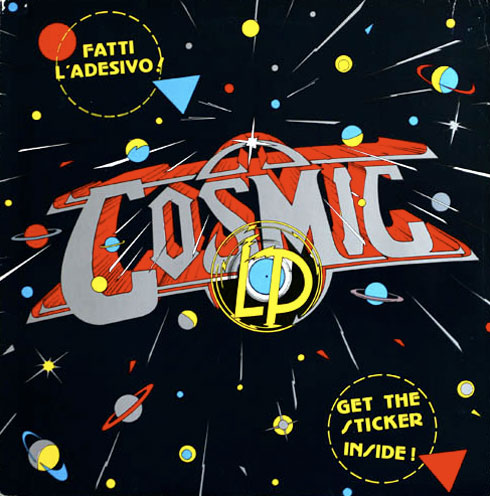
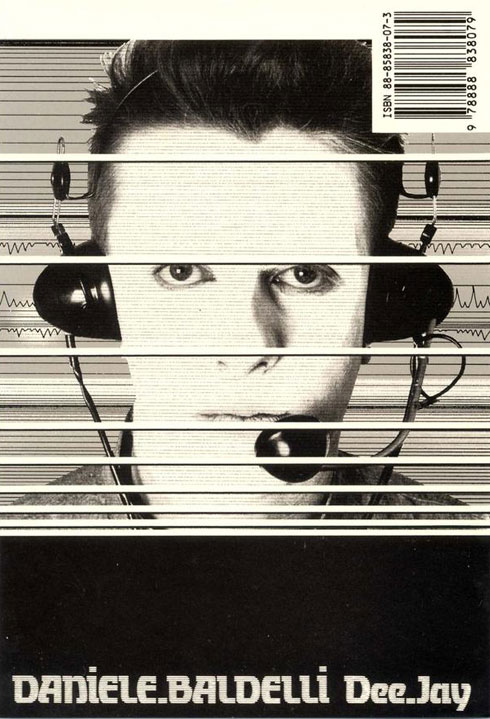
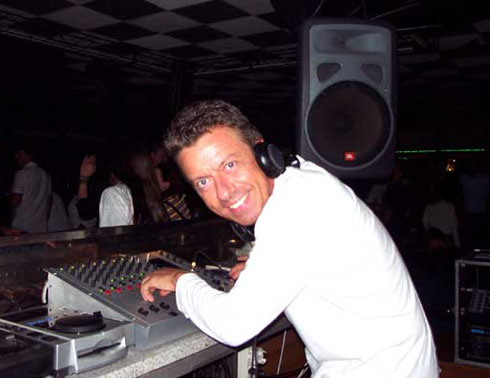
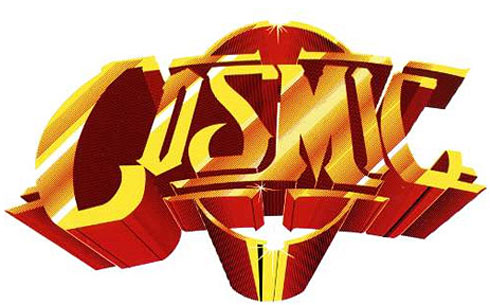
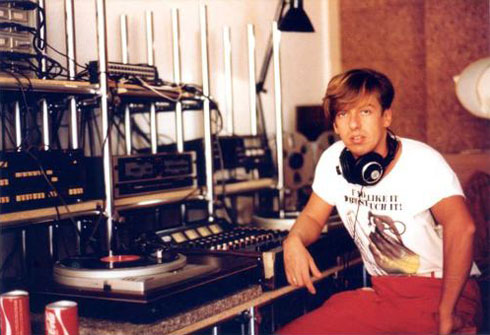
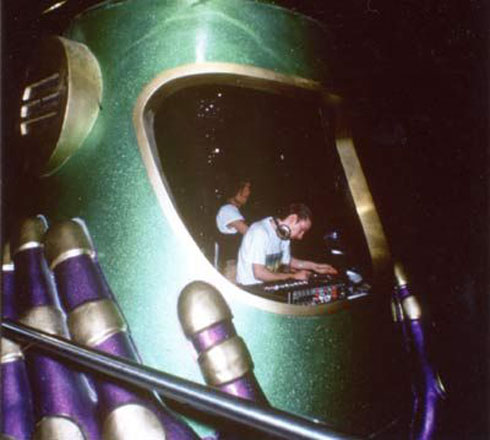 Text: Steele Bonus Images: Daniele Baldelli
Text: Steele Bonus Images: Daniele Baldelli
When the line up for The Sydney Vivid festival 2011 was released it was a real surprise to see one particular name on there, Italian DJ Daniele Baldelli. Whilst Baldelli may not be very well known amongst the mainstream, to fans of underground dance music the man is a bit of a legend. His career spans 42 years, starting out at a time before the actual title and profession of a DJ even existed. In ’77-’78 he was resident at Italy’s first ever joint for domestic night clubbing, The Baia Degli Angeli. Here he would pioneer the art of mixing records, playing an innovative blend of disco and funk from America and Europe. Later from 79-84 he would become DJ at the Cosmic. It was here he would develop the unique style of DJing that he is famous for today. Playing records on the wrong speed and mixing new-wave with ethnic jazz, and African percussion with industrial to amazing effect.
In recent years his legend has spread around the world thanks to the Internet, inspiring young music fans and releasing mixes, edits and his own productions on hip labels such as Eskimo and Gomma. Despite his cult status he has never left Europe to DJ because of a fear of flying. While it may have been more likely that he would have visited The United States or Japan first, instead he’ll be coming to Australia. Lucky for us. Steele Bonus caught up with him to chat about his past, and his upcoming visit to Australia.
Steele Bonus: Can you tell us about your first gig playing records?
Daniele Baldelli: When I was 17 in 1969 I was going to a club that had been open for three months, it was one of the first clubs in Catolica where I lived on the Adriatic coast. Instead of dancing I would spend all night watching a boy there play records. After three or four months the boss of the club came and asked me if I was interested in the job. I was afraid but I said yes. At this time the name ‘DJ’ didn’t exist yet, instead it was just called ‘putting on records’.
I would just play 7″ with no mixer, no headphones and no monitor. I would play these records one after the other as you would in a private party at your home. It was very simple to do and there was no creativity because the records were already prepared by the boss, he said to me ‘you have to play this in this sequence’. There was also a rule at this time that you would have to play three fast records followed by with three slow records. That was my beginning.
SB: When did you realise that DJing was something you wanted to do as a profession?
DB: In the beginning it was not a profession, just a way to do something I liked. I was a student so during the week I would go to school and on Saturday night and Sunday afternoon would be my gigs. After a while DJing started to take up more of my time and became more important and the money was always good so eventually I stopped going to university. At the time my parents told me ‘what are you doing, it’s not a good job’, but now it’s been 42 years that I have been a DJ.
SB: Did you ever have to work any other jobs? Was there ever another profession that you considered?
DB: No, I have never had another job, only DJing.
SB: In ’77 you became the DJ at the legendary Italian club Baia Degli Angeli. What was it about this club that made it such a memorable place for you and many others?
DB: This club was 2km from my home. It was an all white building on a hill overlooking the sea with 2500 capacity, very nice. It was opened by a man that lived in the area and he employed two DJs from New York City, Bob Day and Tom Sisson. They were not famous DJs but they had a lot of American music that nobody in Italy knew because importing and exporting of records was not happening at that time. They were there in ’75 and ’76, we became friends and when they left to go back to the States they introduced me to the owner and I became the DJ there in ’77.
Another nice thing about the place was that the DJ booth was in a glass elevator which I was able to control. I could go up and down inside the club between the first floor and second floor so I could see all the different dance floors. It was also nice to go up and down in the night with the lights, a very good situation.
SB: So did Bob and Tom first introduce you to the disco music that you later played at the Baia Degli Angeli?
DB: In the early ’70s I was playing mainly rhythm and blues, funk and also some white music like rock music from England and things like that. Of course when disco music became big we received some records (in Italy) but a lot of them were unknown to me and I listened to a lot of stuff from Bob and Tom that I hadn’t heard before. One year later the importing and exporting of records became much bigger in Italy and then I started to find all this sort of music.
SB: Was this also around the same time you started making mix tapes and becoming famous in Italy from these tapes?
DB: The mix tapes I started doing in ’71-’72 when I was a DJ in TABOO club. These tapes were just compilations with no mixing. People asked ‘can you make me tapes with James Brown, Wilson Pickett and Aretha Franklin?’ and I said ‘Oh yes I can do that’, so they started as a request. Then around ’76 I started to mix records together and recording the mixes in this way and I have never stopped.
SB: Are you still attached to tapes or have you moved on to CDs?
DB: Now I have moved onto CD of course, no tapes. But a lot of people ask me for the 136 original tapes that I recorded when I was at Cosmic from ’79-’84. There are a lot of collectors who want the original cassettes.
SB: So then in 1979 the Baia closed down and you moved on to become DJ at Cosmic. How involved were you in the creation of this club in terms of the décor, layout, sound system and DJ booth?
DB: The boss of the club was a young man, 32-years-old. When he contacted me he already had a clear idea that he wanted to make a very different club. There was a very big dance floor very similar to the one in Saturday Night Fever with a lot of lights on the dance floor, a lot of lights on the ceiling, a lot of lights on the columns and no room for sitting. The company who made the club decided on the sound system, it was very good with Macintosh amplifiers and JBL sound system. The name Cosmic was also the idea of the boss, he came up with the logo by looking to the logo of the band The Commodores.
SB: Do you remember what first gave you the idea to experiment with combining the records you played at Cosmic?
DB: It wasn’t an idea, it was simply a feeling. I didn’t think about it like ‘this record is disco and I can’t play it with this one because it’s electro or this one is jazz and I can’t play it with reggae.’ I was very free in my mind and it was only an instinct and a feeling. I would just play everything together. It was not like now where you have a techno DJ who will only play at a techno club. At that time in my club I could do what I wanted. Maybe it was also a nice period and at that time everybody was just ready to understand it.
SB: Would you experiment with mixing together all these different records while you were playing inside the club to a dance floor or was this done when at home?
DB: During the week I was always listening to records at home all day long. I was always trying things out and making experiments to see if the records could go together. It was very difficult at the time because all the records were played live so they were not like the new records made with drum machines where the beat is perfect. So listening to a lot of music and trying things out helped me in the club to make the right mixing.
SB: The Cosmic was eventually closed down due to drug problems. What sort of drugs were people there using at this time? Was this a big part of the experience at Cosmic?
DB: In the beginning when the club opened there was a rule of no alcohol inside. The idea was that this would be a place where people would only go to dance, like a gym with music. Eventually the club started to become famous and people started to come from everywhere including Austria and Germany. In 1980 this was the period when heroin started coming down from Holland where everything was free at the time. Lots of people used to smoke marijuana and hash but lots of people also fell down in the heroin problem. Most of the people that would take drugs would stay outside, 90% of the people that would come into the club were there only for music and dancing.
Outside the club this bad situation grew for us, we would have 1000 inside and maybe 2000 outside that made problems with the people that lived nearby because they made lots of noise and they would rather spend money on drugs and not on coming into the club. Because of this the club was closed in ’84.
SB: This period in Italy stands out as a time where there were also many other great DJs such as Mozart, Rubens, Meo, TBC, Beppe Loda etc. Did you feel much of a need to compete and out-do other colleagues?
DB: At the time there was no competition because each of these DJs had their own club, which were not really close to each other. Cosmic, Typhoon, Chicago, La-Meca, there were five or six important clubs. Every one of us created our own way to DJ, we all started out with a similar idea and conditions. At the time Mozart was maybe more funk, Rubens more Brazil and Baldelli more electro from Germany. The bad thing was that everybody in Italy started to give us the name ‘Afro DJs’. This was wrong because Afro was only a small part of what was being played at the time. Now I prefer to be called ‘Cosmic’ because Cosmic became the club that everybody would look at and try and imitate. Later we would end up working together and get to know each other and there was still no problem. Since this time some of them, and this is only my opinion and maybe they feel the same about me, but some of them maybe started to become jealous. Some of them are bad people and it would be better not to know them but unfortunately I do. Some of them have said bad things about me and I don’t know why. It’s only jealousy and this is the human part of the DJ.
SB: Why do you think this was such a good period in Italy for producing DJs?
DB: I think at this time we had all different kinds of music at our disposal. Disco, electronics, jazz, funk, new-wave, punk, a lot of things that you could listen to and learn about. Now most of the music is made by DJs. Techno DJs producing techno music for their dance floor. Most of the time these people are not musicians and they are just using machines to make the tracks. There is no melody and no musician’s feeling so now there is less creativity in the music. I hope that this changes. I’d like to find good music when I go to the shop. I don’t like it when I spend four or five hours listening to new productions and don’t buy anything because I don’t like anything. Fortunately I have more than 60,000 records and I always can find music I have never heard before in my own collection.
SB: With so many records do you have a problem with them over taking your house?
DB: No fortunately I don’t because I have the entire bottom floor of my apartment just for records. Its full of shelves and it’s like a library.
SB: Are you still going digging and discovering new records and music today?
DB: Yes, every week I go to the shops and I always buy records and CD’s. I also buy a lot of old stuff from collectors and today I still discover many great records from the ’70s I don’t have. I thought the ’70s was finished but I am discovering more all the time and this is very exciting.
SB: You have been involved in a few production projects in the past. Do you have any planned for the future?
DB: Yes, I have a CD album coming out any day now dedicated to Richard Bone, an artist from New York in the ’80s. He gave us the licence to make remixes of his tracks and we chose 12 and made an album and it’s called Daniele Baldelli and Marco Dionigi present Richard Bone Adaptors. I am also in the studio with musicians to record My Funky Side 2. Then I am working on another project with Marco Dionigi for Juno Download called Cosmic Eagles which will be dedicated to music from Cosmic. I have also done a remix for Phil Manzanera, guitarist of Roxy Music, but it is still not ready to come out.
SB: Was this a remix of one of his old tracks?
DB: Yes the track is Caracas from the album Primitive Guitars. We have done two remixes and he was happy with them but we are still waiting. I never stop producing, when all these projects are finished I will start on others
SB: So you will be soon visiting Australia to DJ at Vivid Festival. Have you travelled outside of Europe to DJ before?
DB: No, never. This is the first time I have flown such a long way and I am very scared. I am very afraid of flying. I have said no many times in the last five years to Japan, the States, Brazil, Canada. They have asked me to come but I said ‘no thanks, I am very afraid and I will stay in Italy’. But now I have decided to come and I hope everything will be OK.
SB: What made you change your mind after all these years and decide to travel to Australia?
DB: Maybe because of the money and also because I think it will be a good experience. It was very nice to be invited and it’s very nice to see that people want to have you.
SB: Were you surprised to discover that people in Australia are fans of the Cosmic sound?
DB: I know that I have fans everywhere because of the web. These days you can download all of my tapes. In the beginning I was angry about this because at the time I was selling my tapes, but now I understand it is a good thing. However the younger generation these days think everything should be free, and if everything is free I want to know how a musician can live. This is the bad side of the web I think.
SB: You will be DJing at Club Kooky with DJ Gemma and Seymour Butts, Horse Meat Disco and Azari and III. Are you familiar with any of these artists?
DB: I only know Horse Meat Disco. They are four guys from London and I played at Horse Meat Disco last Sunday night. I was in Manchester at Easter time, then went to London and Paris and then back to London again. When I am in London I always have a gig with Horse Meat Disco. Most of the music they play is disco, on the contrary when I play there I play my own Cosmic style.
SB: From your experiences DJing in clubs today how does it compare to what it was like in the late ‘70s early ‘80s?
DB: When I play in Italy I play gigs that I organise. So for sure the atmosphere is the same. Lots of people and lots of fans from the old generation come. Also a lot of people from the new generation. It’s very nice to see 20-year-olds come up to me and say ‘wow what kind of music is this? It’s very good!’, because they have grown up with techno or house, so this is very nice for me.
When I play outside of Italy in Paris or Oslo or Germany, these people I think know me from the web so I feel I can be free and just do what I do. I think they expect to listen to me as a Cosmic DJ so I just be myself and fortunately I never have a problem.
SB: In your travels have you had the chance top hear any other DJs that have an exciting sound of their own?
DB: I don’t have much time to go to other nights because I am always working, so it is very difficult for me to listen to other DJs. Sometimes when it has happened, up until now I have not found someone that has excited me. I hope one day soon to hear somebody and say ‘wow, this I really like!’
SB: If you were to ever to DJ at a party on the moon what would be your opening track?
DB: (Laughs) I would play Moonboots by Orlando Rivia Sound… so I can dance better on the moon.
Daniele Baldelli plays Club Kooky as part of Vivid Festival June 5 2011 at the Sydney Opera House. Purchase tickets here.
Next story: Opimius And Allobrogicus – 121BC



